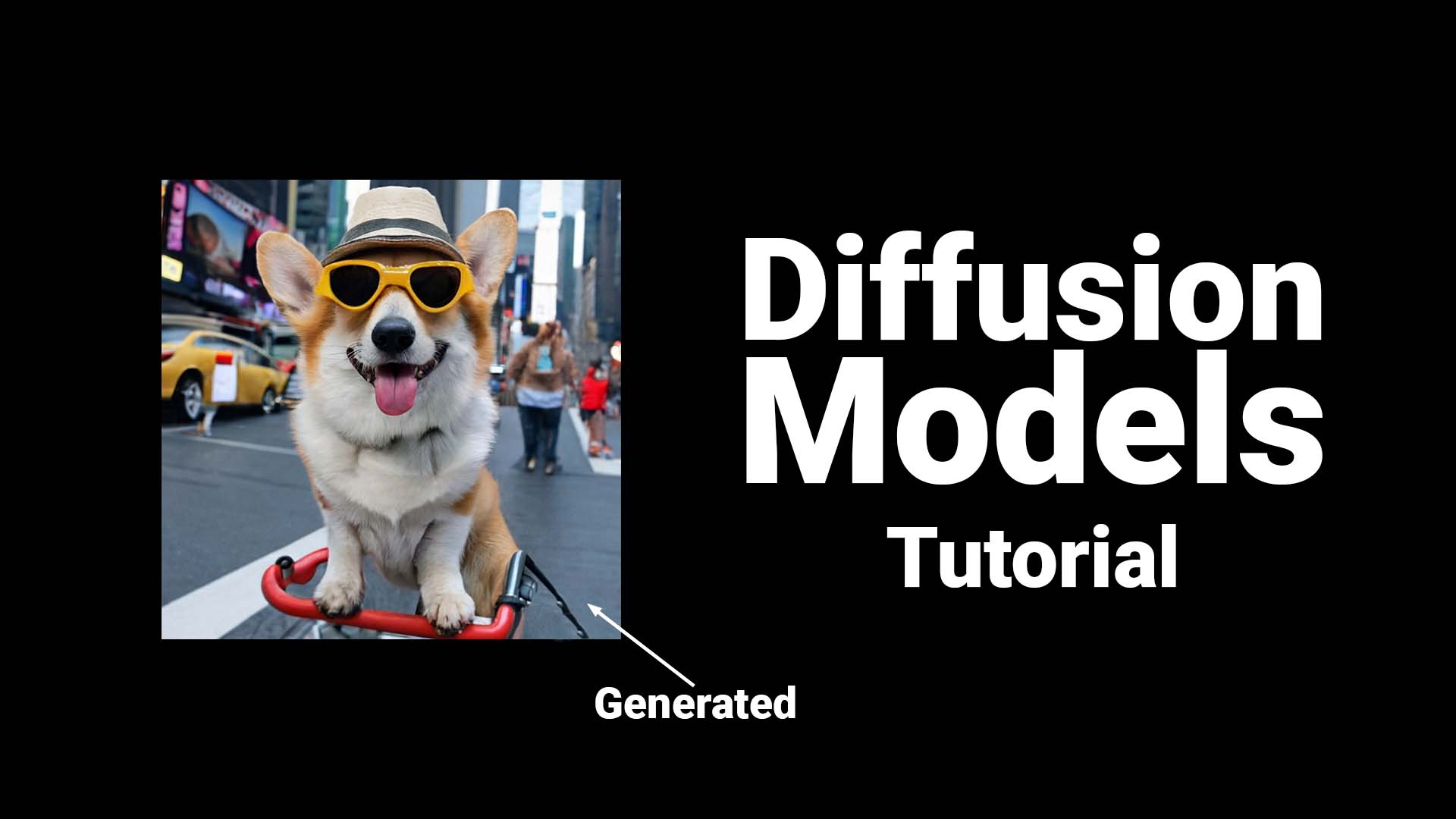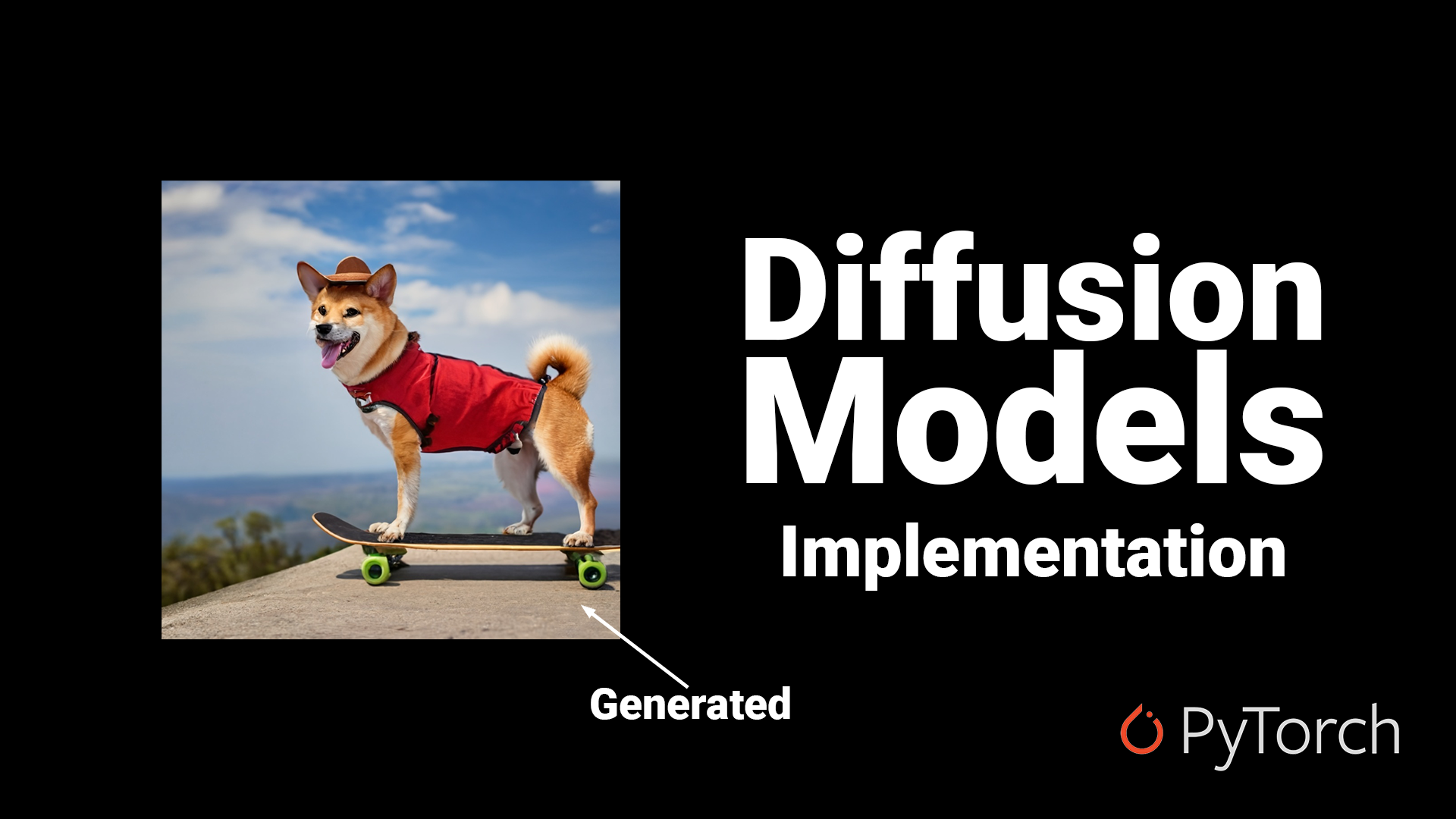Ecosyste.ms: Awesome
An open API service indexing awesome lists of open source software.
https://github.com/tcapelle/Diffusion-Models-pytorch
Pytorch implementation of Diffusion Models (https://arxiv.org/pdf/2006.11239.pdf)
https://github.com/tcapelle/Diffusion-Models-pytorch
Last synced: 14 days ago
JSON representation
Pytorch implementation of Diffusion Models (https://arxiv.org/pdf/2006.11239.pdf)
- Host: GitHub
- URL: https://github.com/tcapelle/Diffusion-Models-pytorch
- Owner: tcapelle
- License: apache-2.0
- Fork: true (dome272/Diffusion-Models-pytorch)
- Created: 2022-09-29T16:55:13.000Z (about 2 years ago)
- Default Branch: main
- Last Pushed: 2023-03-20T12:02:53.000Z (over 1 year ago)
- Last Synced: 2024-08-01T16:45:59.409Z (3 months ago)
- Language: Jupyter Notebook
- Size: 3.44 MB
- Stars: 361
- Watchers: 1
- Forks: 57
- Open Issues: 0
-
Metadata Files:
- Readme: README.md
- License: LICENSE
Awesome Lists containing this project
README
# Diffusion Models
This is an easy-to-understand implementation of diffusion models within 100 lines of code. Different from other implementations, this code doesn't use the lower-bound formulation for sampling and strictly follows Algorithm 1 from the [DDPM](https://arxiv.org/pdf/2006.11239.pdf) paper, which makes it extremely short and easy to follow. There are two implementations: `conditional` and `unconditional`. Furthermore, the conditional code also implements Classifier-Free-Guidance (CFG) and Exponential-Moving-Average (EMA). Below you can find two explanation videos for the theory behind diffusion models and the implementation.
## Train a Diffusion Model on your own data:
### Unconditional Training
1. (optional) Configure Hyperparameters in ```ddpm.py```
2. Set path to dataset in ```ddpm.py```
3. ```python ddpm.py```
### Conditional Training
1. (optional) Configure Hyperparameters in ```ddpm_conditional.py```
2. Set path to dataset in ```ddpm_conditional.py```
3. ```python ddpm_conditional.py```
## Sampling
The following examples show how to sample images using the models trained in the video on the [Landscape Dataset](https://www.kaggle.com/datasets/arnaud58/landscape-pictures). You can download the checkpoints for the models [here](https://drive.google.com/drive/folders/1beUSI-edO98i6J9pDR67BKGCfkzUL5DX?usp=sharing).
### Unconditional Model
```python
device = "cuda"
model = UNet().to(device)
ckpt = torch.load("unconditional_ckpt.pt")
model.load_state_dict(ckpt)
diffusion = Diffusion(img_size=64, device=device)
x = diffusion.sample(model, n=16)
plot_images(x)
```
### Conditional Model
This model was trained on [CIFAR-10 64x64](https://www.kaggle.com/datasets/joaopauloschuler/cifar10-64x64-resized-via-cai-super-resolution) with 10 classes ```airplane:0, auto:1, bird:2, cat:3, deer:4, dog:5, frog:6, horse:7, ship:8, truck:9```
```python
n = 10
device = "cuda"
model = UNet_conditional(num_classes=10).to(device)
ckpt = torch.load("conditional_ema_ckpt.pt")
model.load_state_dict(ckpt)
diffusion = Diffusion(img_size=64, device=device)
y = torch.Tensor([6] * n).long().to(device)
x = diffusion.sample(model, n, y, cfg_scale=3)
plot_images(x)
```
A more advanced version of this code can be found [here](https://github.com/tcapelle/Diffusion-Models-pytorch) by [@tcapelle](https://github.com/tcapelle). It introduces better logging, faster & more efficient training and other nice features and is also being followed by a nice [write-up](https://wandb.ai/capecape/train_sd/reports/Training-a-Conditional-Diffusion-model-from-scratch--VmlldzoyODMxNjE3).

